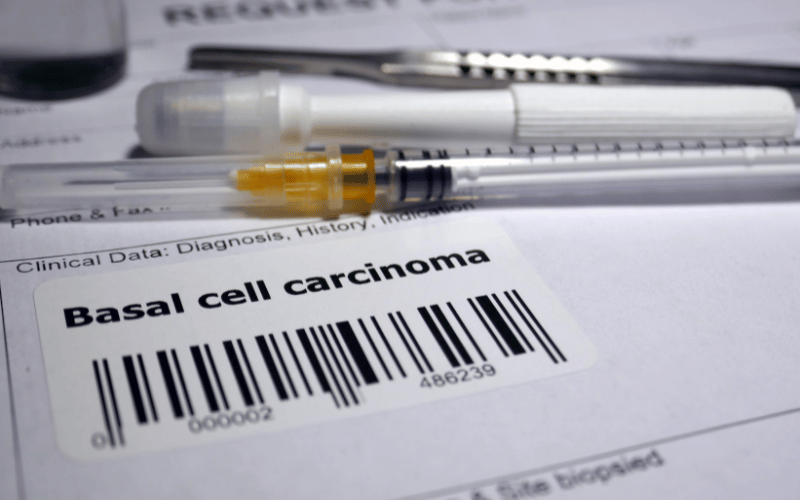Introduction: Laying the Groundwork for Understanding BCC Prognosis

You’re here because you’ve either heard the term Basal-Cell Carcinoma (BCC) recently, or someone you know is grappling with it. Either way, this information is your lifeline. Knowing the prognosis of this skin cancer variety can spell the difference between constant worry and an empowered approach to treatment and recovery.
But let’s clear the air right off the bat. While any cancer diagnosis sounds terrifying, the prognosis for Basal-Cell Carcinoma is generally favorable. And that’s not mere fluff; it’s backed by solid data. This article aims to present ten crucial prognostic facts about BCC—facts that can offer you clarity, hope, and a roadmap for the journey ahead.
Don’t misunderstand; we’re not downplaying the severity of any cancer. Every case is unique, and a prognosis isn’t a guarantee. However, with BCC, the odds are often in your favor, especially when the cancer is detected early. So, information isn’t just power here; it’s a lifeline.
So why should you listen? Well, because we’ve scoured medical journals, spoken to experts, and even tapped into patient stories to offer you a rich tapestry of facts. By the end of this read, you’ll be armed with the knowledge to make informed choices, ask your healthcare team the right questions, and hopefully, step into the future with confidence.
Armed with this data, you’ll be in a better position to navigate your or your loved one’s BCC journey. Stick around, as we unpack these important facts that could be instrumental in determining the quality of life and survival for BCC patients.
1. High Survival Rates: The Silver Lining in Basal-Cell Carcinoma Prognosis

The numbers can sometimes speak louder than words. Basal-Cell Carcinoma boasts survival rates that offer a glimmer of hope in a dark sky. In the context of the five-year survival rate for localized BCC, statistics hover around an optimistic 99%. This data point alone could alleviate a significant amount of stress and anxiety associated with a cancer diagnosis.
While BCC does have an impressive survival rate, don’t let this lull you into a sense of complacency. Even though this type of skin cancer generally stays localized, there are rare instances when it can become more aggressive. These aggressive forms could lead to disfigurement if not treated promptly. However, the bright side is that these aggressive forms are relatively rare, making up a small percentage of all BCC cases.
The survival rate isn’t uniform for all ages and demographics. Research shows disparities in survival rates based on factors like age, ethnicity, and even geography. For example, younger patients generally have better survival rates, while certain ethnic communities show differing outcomes. Understanding these nuances can offer a more tailored picture of what to expect. (1)